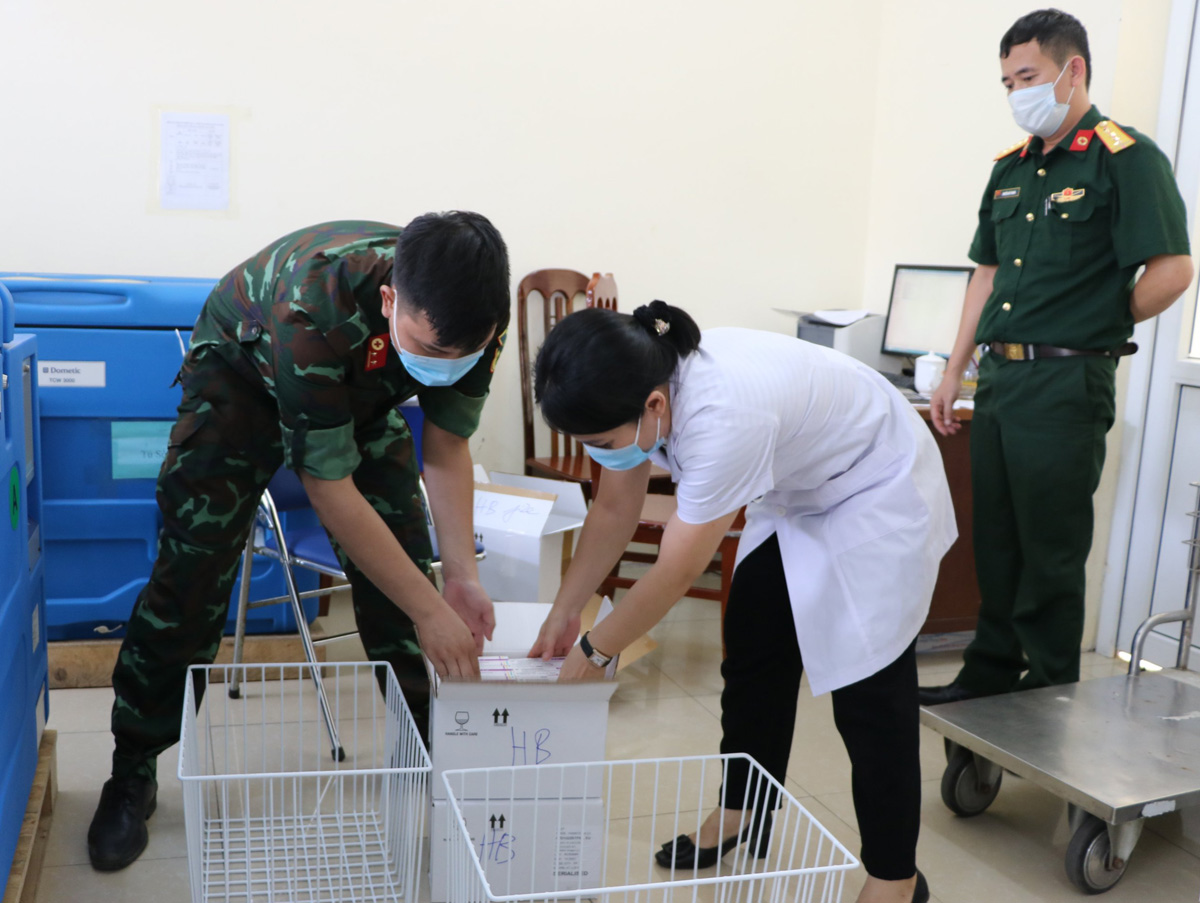
(HBO) – The National Institute of Hygiene and Epidemiology (NIHE) has issued decisions on the allocation of COVID-19 vaccines in three phases. Accordingly, Hoa Binh province will receive 77,370 doses of the Pfizer and AstraZeneca vaccines.

Cadres from the provincial Centre for Disease Control and the provincial
Military Command receive COVID-19 vaccine.
Under the institute’s Decision No.
1712/QD-VSDTTU, issued on December 9, the 101st phase of allocation covers
4,912,830 doses of the Pfizer vaccine bought using the State budget, while the
102nd phase 5,276,700 doses of the Pfizer vaccine donated by the COVAX Facility
and 1,698,270 tubes of solvent to the disease control centres of provinces and
cities.
Of the amount, the NIHE will provide Hoa Binh
with 14,040 vaccine doses and 2,340 solvent tubes in the 101st phase, along
with 57,330 vaccine doses and 9,560 solvent tubes in the 102nd phase.
Also on December 9, the NIHE issued Decision No.
1713/QD-VSDTTU on the 103rd phase of allocation involving 466,600 doses of the
AstraZeneca vaccine brought using the State budget via the Vietnam Vaccine
joint Stock Company. Hoa Binh will be given 6,000 vaccine doses among them.
The NIHE asked the recipients to administer the
allocated doses to the right groups in an effective manner and complete the
vaccination early. They were also demanded to report the results to the Health
Ministry’s Department of Preventive Medicine, the NIHE, and the
epidemiology/Pasteur institutes responsible for them. The NIHE also requested
the province’s disease control centre to coordinate with Military Region 3 to
receive the vaccines as soon as possible.
The emulation movement "Hoa Binh joining hands to build new-style rural areas” has been widely spreading, becoming a driving force that motivates the localities to renew rural landscapes and improve the material and spiritual lives of the residents. In this movement, the people play a central role-both as the main implementers and direct beneficiaries of its outcomes.
In response to the global digital revolution, Hoa Binh Newspaper is transforming itself into a modern and multi-platform media hub, blending cutting-edge technology with a restructured newsroom and a new generation of tech-savvy journalists.
Hoa Binh province’s Association of the Elderly recently held a conference to review the project on expanding the inter-generation self-help club model until 2025.
In a move to implement Resolution No. 57-NQ/TW, issued on December 22, 2024 by the Politburo, which targets breakthroughs in science-technology development, innovation, and digital transformation, the Hoa Binh provincial Department of Health has issued a plan to roll out the "Digital Literacy for All” campaign within the local health sector.
An Nghia Commune (Lạc Sơn District) is one of the communes that achieved the tha standard of the national new rural area in 2018. Entering a new development phase, the commune is now trying to meet the criteria for the advanced new rural development. With the strong political will and the public consensus, the commune is gradually overcoming the challenges to reach this goal, aiming for the sustainable development.



